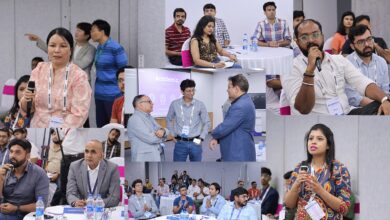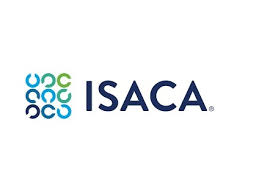Scientists from Spain and India Lead an International Project to Develop New Antibiotics Against Gram-Negative Bacteria
ABAC Therapeutics, together with the artificial intelligence (AI) company, Peptris, and the Foundation for Neglected Disease Research (FNDR), with scientific support from Medicines for Malaria Venture (MMV), leads an international project to optimize a new chemical structure that has shown effectiveness against Gram-negative bacteria, the greatest current threat to public health.Business Wire India
- ABAC Therapeutics, together with the artificial intelligence (AI) company, Peptris, and the Foundation for Neglected Disease Research (FNDR), with scientific support from Medicines for Malaria Venture (MMV), leads an international project to optimize a new chemical structure that has shown effectiveness against Gram-negative bacteria, the greatest current threat to public health.
- In recent decades, there has been a significant increase in the incidence of infections caused by the Gram-negative bacteria known as “the four killers”: Acinetobacter baumannii, Pseudomonas aeruginosa, Escherichia coli and Klebsiella pneumoniae.
- The team of researchers intends to identify and optimise molecules that could be progressed to clinical studies within the next two years.
In order to fight this threat, ABAC Therapeutics has joined an international project along with two Indian organizations: Peptris, a company specialized in AI, and Foundation for Neglected Disease Research (FNDR), an organization focused on anti-infective research, which this September celebrates eight years of activity. Medicines for Malaria Venture (MMV) a leading product development partnership in malaria drug development is also providing scientific support.
The goal of the project is to identify new therapies against Gram-negative bacteria, the pathogens that pose the greatest threat to public health, according to the WHO. Specifically, 4 species, Acinetobacter baumannii, Pseudomonas aeruginosa, Escherichia coli and Klebsiella pneumoniae, known as “the four killers", are of particular concern. These microorganisms cause serious infections, such as pneumonia, bloodstream infections, and urinary tract infections, which affecting high-risk patients such as those recovering from major surgery or are undergoing cancer treatment. Due to the severity of infection they cause and high resistance to available antibiotics; “They are the main target for companies discovering new antibiotics," points out Dr. Domingo Gargallo-Viola, CEO of ABAC Therapeutics, a leading company in the research of new antibiotics.
ABAC has initially screened 145,000 compounds from MMV’s compound collection against a range of bacteria. Chemical series with a narrow spectrum of activity against bacterial pathogens of interest were identified, and these include a new chemotype with demonstrated activity against Gram-negative bacteria.
The two-year project, announced today by ABAC, Peptris, FNDR and MMV, will be developed in four stages. Artificial intelligence and in silico methods will be used to analyse the screening data, and propose new chemical series, which will then be optimised for both their antibacterial activity and their safety and tolerability.
A global project for a problem without borders
Dr. Venkatasubramanian Narayanan, CEO of Peptris, highlights the global nature of this project. “We address a global, borderless problem. In the health sector, those dedicated to combating infectious diseases, operate in a global environment, because of the geographical dimension of the problem and because of the global response that this type of problem requires." This global vision for fighting infections aligns with the concept of "One Health", making sure that there is interdisciplinary collaboration at different levels to optimize the health of people, animal and the environment.
Dr. Shridhar Narayanan, CEO of FNDR, says: “There is a huge unmet medical need for developing new antibiotics targeting novel mechanisms especially for Gram negative bacterial infections. Being a global problem, it is essential for partners from around the world to collaborate and find answers to this crisis. This consortium brings together synergistic global expertise in the field of antibiotic drug discovery, including use of AI/ML to achieve a faster timeline to deliver a clinical candidate."
Dr. Jeremy Burrows, Vice President, Head of Drug Discovery commented, “MMV is excited to have provided compounds for screening and will contribute its experience in the discovery and development of anti-infective agents, as well as its management capacity and knowledge in international projects.”
The four organizations will contribute their experience and background in various facets of drug discovery, in a complementary and balanced manner: ABAC Therapeutics will participate in carrying out antibacterial activity and safety in vitro testing, in vivo toxicity studies, and will contribute its experience in microbiology, cell biology, pharmacology, DMPK and safety (in vitro and in vivo). Peptris brings to the project its experience in the management and development of computer tools, in computational chemistry, drug discovery, medicinal chemistry, biology and bioinformatics. FNDR is responsible for the synthesis and delivery of the new compounds, the determination of their physicochemical properties, the performance of stability studies of the new compounds under different experimental conditions, and the studies of therapeutic efficacy in experimental models of infection.
References:
(1). Global burden of bacterial antimicrobial resistance in 2019: a systematic analysis. The Lancet January 19, 2022. DOI: https://doi.org/10.1016/S0140-6736(21)02724-0
Further information:
![]()
Disclaimer: This content is distributed by Business Wire India.



